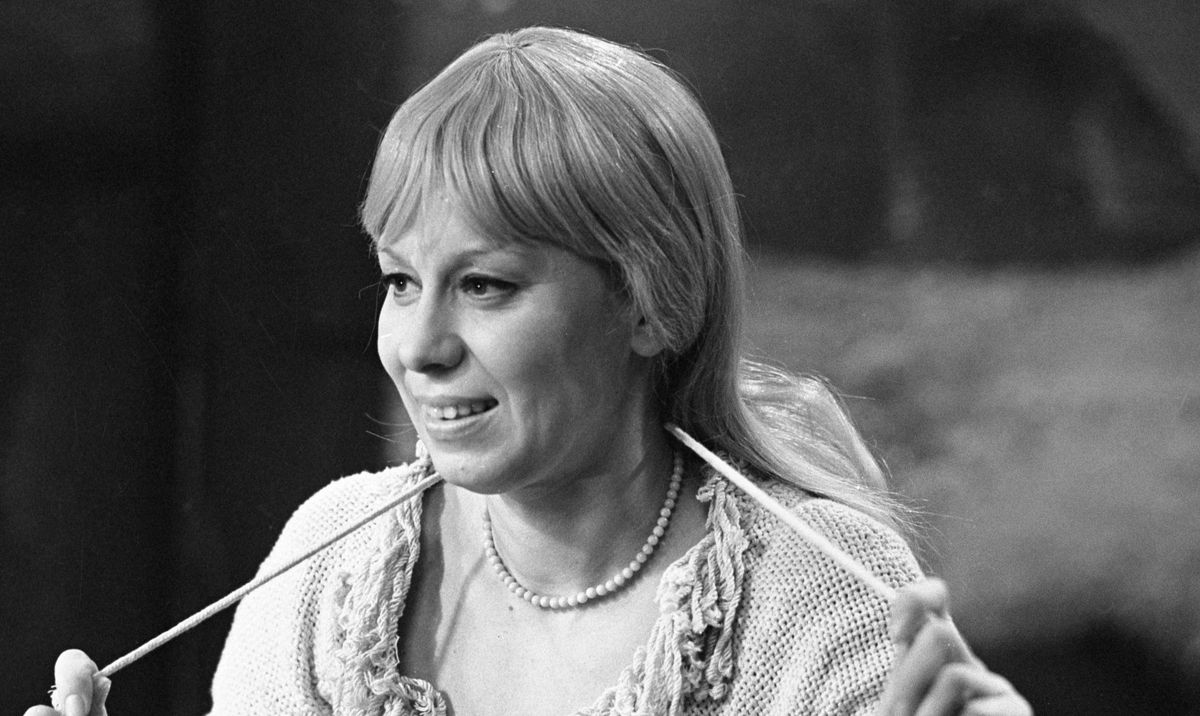She was the third wife of Adam Hanuszkiewicz and her greatest stage successes occurred during his management, first at the Powszechny Theater and then at the National Theater. Before she came to Warsaw, she spent her first years in Krakow, where in 1955 she graduated from the local PWST and made her debut in “Ballads and Romances” by Mickiewicz at the Young Audience Theater, then she played Dorota in “Droga do Czarnolasu”. Before she moved permanently to Warsaw in 1958, she played Ibsen’s Nora in Lublin. In 1958, Irena Babel invited her to join the Powszechny Theater to play the role of Grusza in “The Caucasian Chalk Circle”. Then she played a guest role as Olga in Kafka’s “The Castle” at the Ateneum, and then for a dozen or so years she was associated privately and artistically with Adam Hanuszkiewicz. During his management at Powszechny, and then after Kazimierz Dejmek was fired from the National, until the martial law, she became one of the main actresses of the National. In Powszechny she was the Bride in “The Wedding” by Wyspiański, Sonia in “Crime and Punishment” based on Dostoyevsky, Mrs. Wąsowska in “Mr. Wokulski” based on “The Doll” by Prus and Diana in “Fantazy” by Słowacki.
Hanuszkiewicz cast her, among others, in the role of Gertrude in the famous “Hamlet” with Daniel Olbrychski in the title role. She was Lady Macbeth in “Macbeth”, Masha in Chekhov’s “Three Sisters”. As critics emphasized, “a masterpiece of acting craft, especially the art of words”, was the episodic role of the Virgin Mary of Pochaj in “Beniowski” based on Słowacki, awarded at the 1st Opole Confrontations of Polish Classics. Kucówna perfectly fits into the history of the Mały Theater invented by Hanuszkiewicz as a chamber stage of the National Theater located in the basement of department stores. Here, where the actors were “at the audience’s fingertips, feeling their breath on their backs”, she played, among others, in “A Month in the Countryside” directed by Andrzej Łapicki. And also in “Maria” by Iredyński, which won an award at the Festival of Contemporary Arts in Wrocław. She was also Hanuszkiewicz’s muse in the Television Theater. It was with her in mind that her then-husband directed the very successful “My Wife’s Stories” based on Żuławski.
Alina Janowska and Zofia Kucówna among actors, participants of the 14th ZASP Congress, April 1993.
After the introduction of martial law, when Hanuszkiewicz was removed from Narodowy and with him a large part of the band, Kucówna joined Ateneum for several years, and then with Współczesny. There she played with Maja Komorowska in “Letycja i lovage” and in “Quartet”. After Zofia Kucówna’s breakup with Hanuszkiewicz, her theater career noticeably slowed down. Kucówna, who once loved the avant-garde, has become more and more conservative over the years. Not having many interesting theater offers (she played with Henryk Bista in Ionesco’s “Chairs” and a monodrama based on Maria Dąbrowska’s “Diaries”), she was intensively involved in social activities, continued her teaching work, wrote several books of memoirs and, together with Aleksandra Dmochowska on behalf of ZASP, Home of the Veteran Actor in Skolimów.
As an actress in a film, she had the right to feel unfulfilled. She was known, among others, from roles in the films “Wiano” by Jan Łomnicki, “Spirala” by Krzysztof Zanussi and “Rain July” by Leonard Buczkowski, as well as the series “Egzamin z Życie” and “Dom nad rozlewiskiem”.

